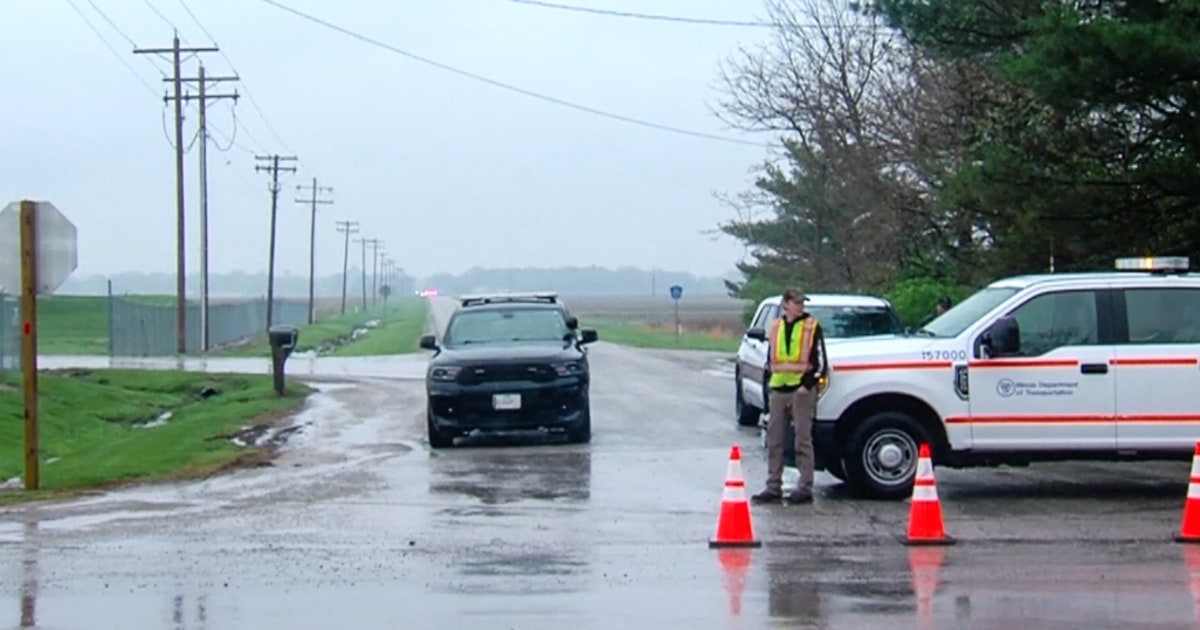Tragic Illinois Plane Crash Claims Four Lives: What Went Wrong?
A single-engine plane crashed in rural Illinois on Tuesday afternoon, killing all four passengers aboard. The aircraft, a Piper PA-32, went down near the town of Mendota around 3:15 p.m. local time, sparking an immediate response from emergency crews. The National Transportation Safety Board (NTSB) has launched an investigation to determine the cause of the fatal accident, which occurred amid clear weather conditions.
Eyewitness Accounts and Immediate Aftermath
Local residents reported hearing a sputtering engine before the plane plummeted into a cornfield. “It sounded like the engine was cutting in and out, then there was a loud thud,” said Mark Henderson, a farmer who witnessed the crash. Firefighters arrived within minutes but found no survivors amid the wreckage. The victims, whose identities have not yet been released, were believed to be a family returning from a weekend trip.
Authorities cordoned off the area as NTSB investigators began documenting the scene. “Our priority is recovering the victims and preserving evidence to understand what led to this tragedy,” said NTSB spokesperson Laura Simmons. Preliminary reports suggest the aircraft did not issue a distress call before crashing, raising questions about mechanical failure or pilot error.
Investigating the Possible Causes
While the investigation is in its early stages, aviation experts have highlighted several potential factors:
- Mechanical failure: The Piper PA-32 has a generally strong safety record, but aging components can pose risks.
- Fuel exhaustion: Preliminary data indicates the plane was near the end of its planned route.
- Pilot experience: The pilot’s flight history and recent training are under scrutiny.
According to FAA records, the aircraft was last inspected six months ago, with no reported issues. However, retired pilot and safety analyst David Keller cautioned, “Even well-maintained planes can encounter unforeseen problems, especially in smaller aircraft where redundancy systems are limited.”
Broader Trends in Small Aircraft Safety
This crash adds to a troubling pattern of small-plane accidents in the U.S. In 2022, the NTSB recorded 1,139 general aviation accidents, resulting in 342 fatalities. While commercial aviation remains exceptionally safe, private flights account for a disproportionate number of incidents due to factors like:
- Less stringent maintenance requirements
- Variable pilot training standards
- Exposure to unpredictable weather
“The gap between commercial and private aviation safety is widening,” said Dr. Emily Carter, an aviation safety researcher. “Technological advancements like collision-avoidance systems are often cost-prohibitive for private owners, leaving them more vulnerable.”
Community Mourns as Questions Linger
Mendota residents described the victims as “pillars of the community,” with local schools planning a candlelight vigil. Meanwhile, the NTSB expects its preliminary report within 30 days, though a full analysis could take up to two years. “We owe it to the families to find answers,” Simmons emphasized.
For now, the wreckage will be transported to a secure facility for further examination. Investigators will scrutinize the engine, flight controls, and cockpit instruments for clues. The pilot’s medical records and flight logs will also be reviewed.
What’s Next for Aviation Safety?
This tragedy reignites debates about stricter regulations for private aircraft. Advocacy groups are pushing for mandatory installation of modern safety technologies, such as:
- Automatic dependent surveillance-broadcast (ADS-B) systems
- Emergency terrain awareness alerts
- Real-time engine monitoring
While the FAA has introduced voluntary safety programs, critics argue more enforcement is needed. “Preventable accidents keep happening because the system relies too heavily on self-compliance,” Keller noted.
As the investigation unfolds, our thoughts remain with the victims’ loved ones. For those interested in supporting aviation safety reforms, contact your local representatives to advocate for change. In the meantime, the skies over Illinois will feel emptier without those four souls.
See more Update My News



